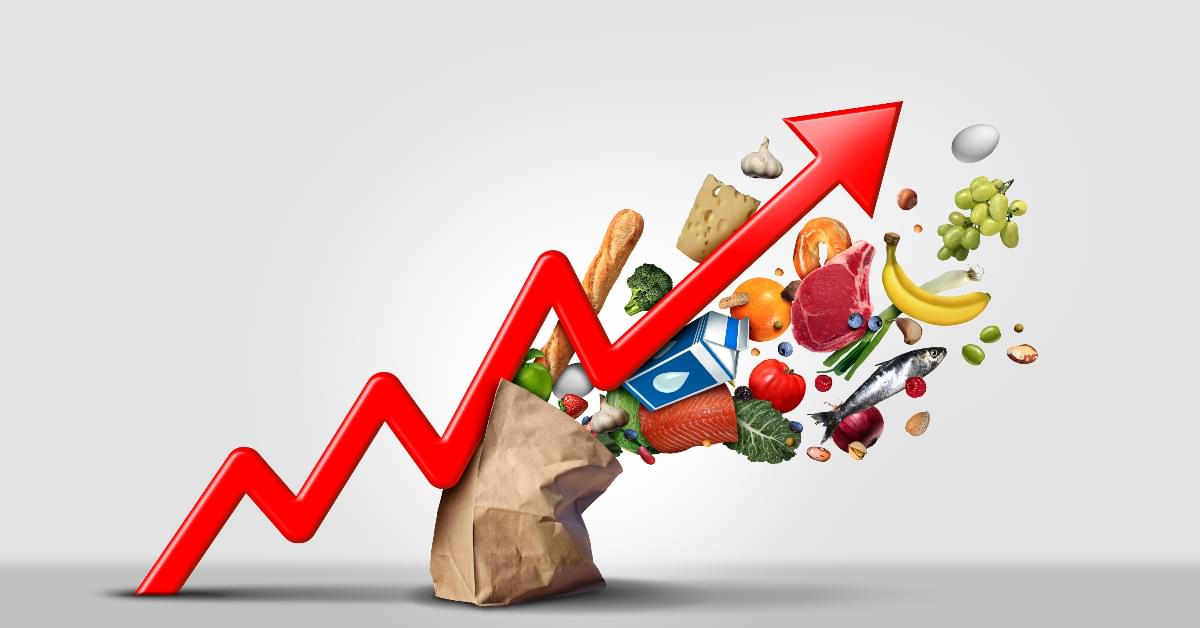Inflation
In its simplest form, when there is inflation, there is a rise in the price we pay for goods and services.
A good way to think about it is to imagine a basket of selected goods that you usually buy - milk, bread, chocolate, etc. If you were to look back at your receipts and see that you paid less for the goods a period of time ago, and the same basket of goods now costs more, then inflation has occurred.
The rise is often expressed as a percentage and means that a unit of currency will effectively buy you less than it did before.
Yet, inflation isn’t always a negative thing in economics. For example, those with assets like property will be happy to see inflation raise the value of their asset so that if they were to sell, they’d receive more money than they had originally for it.
